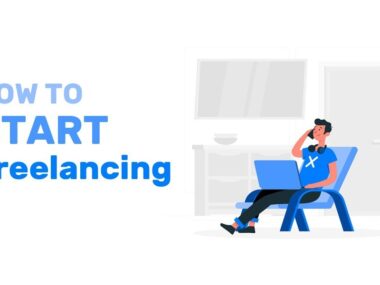Artificial Intelligence (AI) stands at the forefront of technological innovation, reshaping industries and redefining the nature of work. As AI continues to advance, its influence on future job trends becomes increasingly profound. In this comprehensive exploration, we delve into the multifaceted impact of AI on employment opportunities, skill requirements, and the overall workforce landscape.
Understanding Artificial Intelligence:
Artificial Intelligence encompasses a broad spectrum of technologies aimed at simulating human-like intelligence in machines. From machine learning algorithms to natural language processing and robotics, AI applications span diverse sectors, including healthcare, finance, manufacturing, and beyond. The evolution of AI has been marked by significant advancements, driving its integration into various aspects of our daily lives and business operations.
Automation and Job Displacement:
One of the most tangible effects of AI on the job market is automation, which streamlines processes and replaces repetitive tasks with intelligent systems. Industries such as manufacturing, retail, and transportation have witnessed significant job displacement as AI-driven automation becomes more prevalent. While automation enhances efficiency and productivity, concerns about unemployment rates and workforce displacement loom large.
Job Creation in AI-related Fields:
Conversely, the rise of AI has also led to the creation of new job roles and career opportunities in AI-related fields. Professions such as data scientists, AI engineers, and machine learning specialists are in high demand across industries seeking to leverage AI for competitive advantage. The demand for professionals with AI expertise extends to sectors like healthcare, finance, cybersecurity, and beyond, driving innovation and economic growth.
Reskilling and Upskilling Initiatives:
Recognizing the need to adapt to the changing job landscape, governments, educational institutions, and corporations are investing in reskilling and upskilling programs. These initiatives aim to equip workers with the necessary skills to thrive in AI-driven environments and mitigate the risk of job displacement. Lifelong learning and continuous professional development have become imperative for individuals seeking to remain competitive in the evolving job market.
Human-AI Collaboration:
Rather than replacing humans outright, AI is increasingly being integrated into workplaces to complement human capabilities. Human-AI collaboration yields synergistic outcomes, where AI enhances productivity, efficiency, and decision-making processes while humans provide context, creativity, and empathy. Successful collaborations between humans and AI systems are evident in fields such as healthcare diagnosis, customer service, and creative industries.
Adaptability and Soft Skills:
In the age of AI, adaptability and soft skills play a crucial role in navigating the evolving job market. While technical expertise remains essential, soft skills such as critical thinking, creativity, emotional intelligence, and problem-solving abilities are equally valued. Individuals who cultivate a balance of technical and soft skills position themselves as valuable assets in AI-driven industries, capable of thriving amidst technological disruptions.
The Future of Work:
Looking ahead, the future of work is shaped by AI advancements and automation. Scenarios of job polarization, income inequality, and labor redistribution loom large, necessitating proactive measures from policymakers, businesses, and society. Embracing inclusive growth strategies, investing in education and training, and prioritizing ethical considerations are key to harnessing the full potential of AI for societal advancement.
Other Recommended Posts:
As artificial intelligence continues to redefine the nature of work, individuals and organizations must embrace change and adapt proactively to the evolving job landscape. By investing in reskilling, fostering human-AI collaboration, and prioritizing the development of adaptable skill sets, we can harness the transformative power of AI to drive economic prosperity and shape a future where technology serves humanity’s collective well-being.

